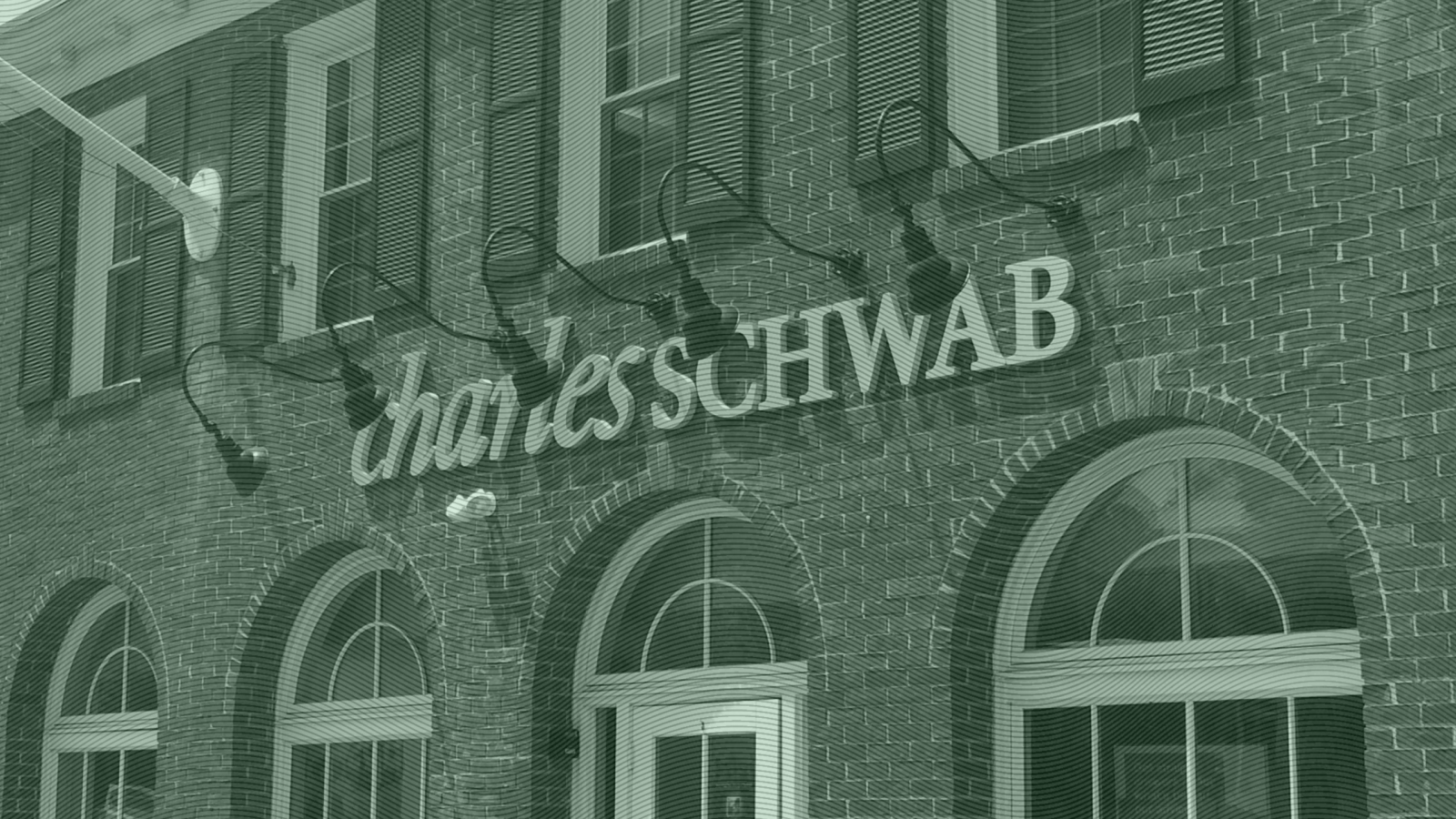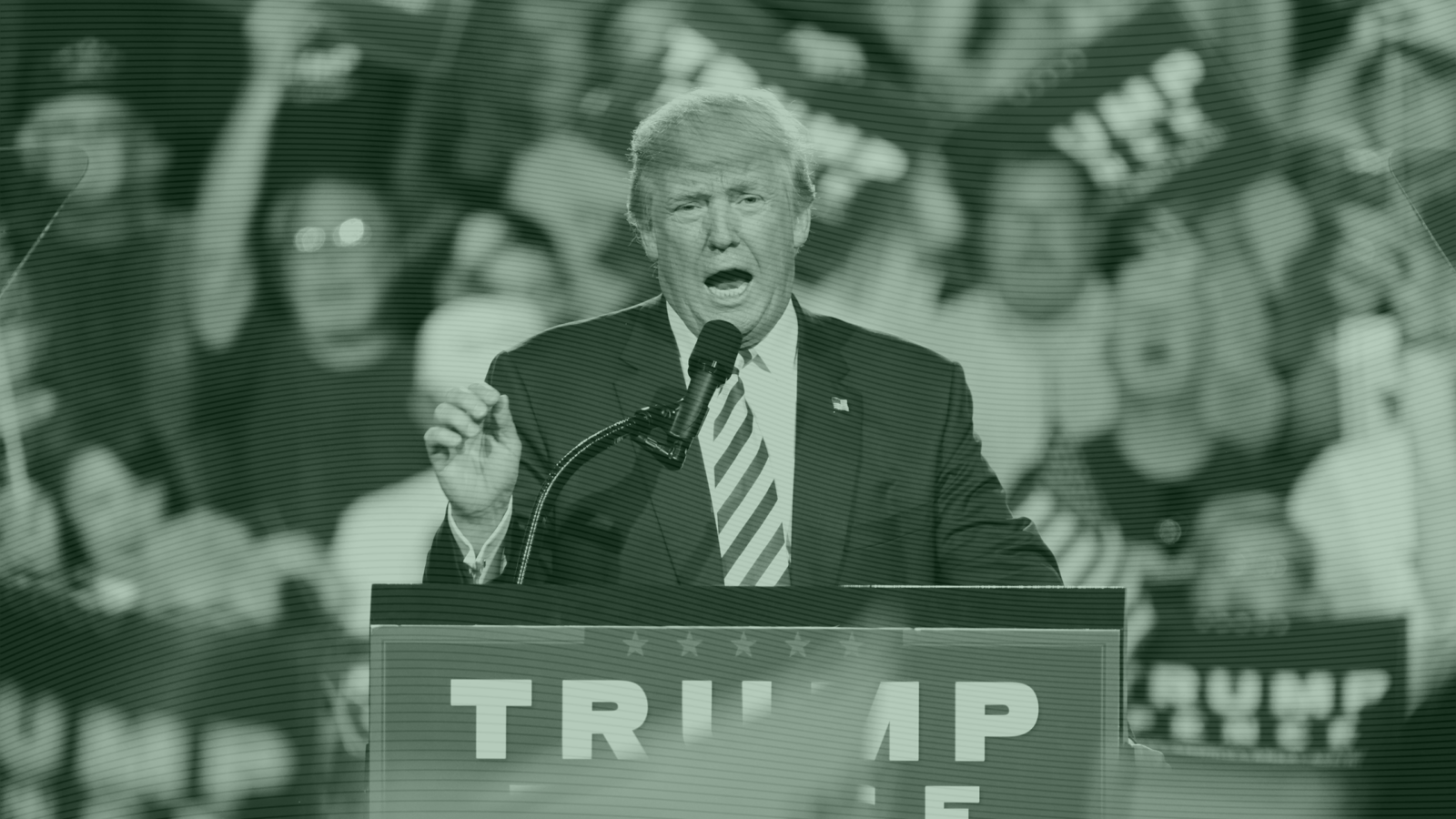Good morning.
One of Australia’s largest banks is hoping employees stay away from the bottle-o while on the trading desk.
The Australia and New Zealand Banking Group said a ban on booze during working hours is “on the table” after a series of incidents led to leaves for three traders and a formal warning for another, according to reports. The bank told regulators that it had officially reported inaccurate information including double-counting of transactions. Whoops.
The potential ban, however, would not just be in place for traders, but impact employees across the wider bank. Now they’ve ruined it for everyone.
Schwab Eyes Financial Advice as Cash Sweeps Dry Up

Financial advice may be back in style at Charles Schwab.
For decades, the largest US publicly held brokerage has relied on cash-sweep programs that shuffle clients’ cash into higher-yielding accounts as a source of revenue while it pioneered offering free trades to customers. Fast forward to today, and historically high interest rates have clients rethinking those arrangements — a rash of high-profile lawsuits over the practice have taken the industry by storm.
Executives now want to beat the company’s decades-old dependence on banking revenue cold turkey, and that means a renewed focus on more predictable fee-based revenue streams from, you guessed it, financial advice. “The fact that Schwab is renewing their focus on financial advice is a positive for consumers,” said Kevin R. Miller, CEO at E-Valuator Risk Managed Strategy Funds. “It’s not a negative for most independent financial advisors and wealth managers, either.”
What’s the Plan, Stan?
Remember that whole “Schwabitrade” tie-up a few years back? CEO Walt Bettinger said in a second-quarter earnings call that, now, the onboarded TD Ameritrade customers brought over in the blockbuster acquisition are starting to bear fruit. Schwab acquired roughly $2 trillion of Ameritrade’s client assets, according to Bettinger. “Ameritrade is clearly an important part of our business,” he said.
Schwab’s wealth management division, known as Advice Solutions, brought in about $510 million in the second quarter, accounting for 11% of total revenue, according to a Wall Street Journal report, and executives hope to juice those numbers next year. While the exact plan is unclear, a renewed focus on wealth revenues will put it on a collision course with banking giants like Wells Fargo and Morgan Stanley, who are facing cash-sweep dramas of their own.
Sweep Problems. Schwab was one of the first major brokerages to get hit with a regulatory penalty over cash sweeps in 2022. It was one of the largest cases of its kind; Schwab was fined $187 million by the SEC for failing to disclose the program to clients. One study found customer losses could have risen to as much as $500 million over a six-year period. Bad brokerages, bad.
But will other industry titans copy Schwab’s shift from cash-sweep revenue to a more wealth management-focused game plan? “An industry leader like Schwab will always have followers,” Miller told The Daily Upside.
Advisors Gear Up for Treasury’s New Anti-Money Laundering Rule
If you see something, say something — and if you’re an advisor, definitely say something.
Starting in 2026, most advisory firms will be required to formally report suspicious money laundering activities to the US Treasury. Finalized last week, this new rule mandates that nearly 20,000 registered independent advisors, as well as exempt reporting advisers, implement an anti-money laundering program and notify the Financial Crimes Enforcement Network of any unusual transactions, according to a proposal.
The rule will “close critical loopholes in the US financial system that bad actors use to facilitate serious crimes like corruption, narcotrafficking, and fraud,” Treasury Secretary Janet Yellen said in a release.
The rule expands the definitions of “financial institution” under the Bank Secrecy Act. However, RIAs registered with the SEC solely because they are mid-sized advisors, multi-state advisors, pension consultants, or those that do not report any assets under management will be excluded from the rule. As of July 2023, there were roughly 15,400 RIAs and 6,000 ERAs in the US, according to Treasury data.
Reporting for Duty
Advisors have been preparing for the Treasury’s AML rule since the department first proposed it in 2015. Carl Fornaris, a partner at law firm Winston & Strawn, told The Daily Upside that most advisors already have AML programs, except now they will be formalized. “The Treasury is giving a lot of runway for the industry to have a more bank-like or broker-dealer-like AML compliance culture,” he said.
However, FinCEN’s requirements could become expensive. While the cost should be manageable for advisors affiliated with banks and brokers, that won’t necessarily be the case for non-affiliated firms. “The costs could be dramatic especially considering the time required to develop systems for detecting and reporting suspicious activity,” Braddock Stevenson, of counsel for the law firm Paul Hastings, told The Daily Upside.
Some industry pushback has emerged, primarily because advisors do not hold custody of client funds and such money laundering would occur through the banks, Stevenson said. Nonetheless, FinCEN believes that advisors, who have direct contact with clients, are also positioned to sniff out suspicious activities.
Beware the Oligarchs: As well as a strategy to suss out fraud and tax evasion, the rule is in line with regulators’ efforts to crack down on Russian oligarchs and Chinese crime syndicates using the US financial system for illicit purposes.
“The reality is that registered investment advisors have been a type of financial institution that has been escaping the Patriot Act’s AML program requirement for 23 years,” Fornaris said. “This is just something that the Treasury — under a number of administrations — has had on their radar screen.”
Advisors Donated More to Trump, Republicans — With a Major Caveat

Wall Street has historically welcomed conservative administrations because they tend to take a more laissez faire approach to corporate America and regulation. This year, political donations from advisors — a combined $1.93 million — are leaning more toward former president Donald Trump … with some significant qualifications, though.
Financial advisors have donated roughly $1.5 million to the Trump campaign and Republican groups, but two-thirds of that came from just one JPMorgan employee who donated just over $1 million, according to OpenSecrets.org data reviewed by AdvisorHub. Meanwhile, advisors have donated less than $400,000 to the Joe Biden-now-Kamala Harris campaign and Democratic groups — but similarly, most of that came from a single donor.
Removing those outlying donations, advisors backed Republican groups by a margin of $500,000 compared to just under $200,000 donated to Democratic associations, according to the data.
Red vs. Blue
In the red corner, veteran broker Walter Schlaepfer, who joined First Republic in 2020 after leaving Merrill Lynch, donated more than $1 million to Make America Great Again Inc., a super PAC that is being largely supported by billionaire Timothy Mellon this election cycle.
And in the blue corner, Mark Kuhn — who heads the RIA Kuhn Advisors in Durham, North Carolina — gave $225,000 to American Bridge 21st Century, a super PAC that recently released Pokemon-style trading cards featuring conservative candidates and their supporters.
- Including donations to campaigns, super PACs, and other organizations, advisors that donated gave $4,976 on average to Republicans and $1,728 to Democrats, according to AdvisorHub.
- For just campaign contributions, advisors donated $170 to Biden or Harris on average, greater than the $138 they gave directly to Trump, according to the article.
- There is a $3,300 limit on direct federal campaign donations, but no maximum for contributions to super PACs, according to the Federal Election Commission.
Place Your Bets: Referencing historical data, MarketWatch columnist Mark Hulbert concluded that when the Dow has an up year during an election cycle, the incumbent party is more likely to win. He’s projecting that Harris has a 64% probability of taking the cake come November.
As of last week, the Dow was up around 10% year-to-date. Hulbert said performance is more important than GDP, consumer confidence index, and other indicators: “It’s the stock market, stupid,” he wrote.
Extra Upside
- Tax Me If You Can. Vice President Kamala Harris’s proposed tax on billionaires creates questions for advisors, especially when it comes to unrealized capital gains.
- Triple Threat. The wirehouse is considering ETF versions of mutual funds that could triple the number of index funds already on its platforms.
- I Don’t. Advisers are encouraging use of charters and prenuptial agreements to bring clarity on division of assets for wealthy families.
Advisor Upside is edited by Sean Allocca. You can find him on LinkedIn.
Advisor Upside is a publication of The Daily Upside. For any questions or comments, feel free to contact us at advisor@thedailyupside.com.
